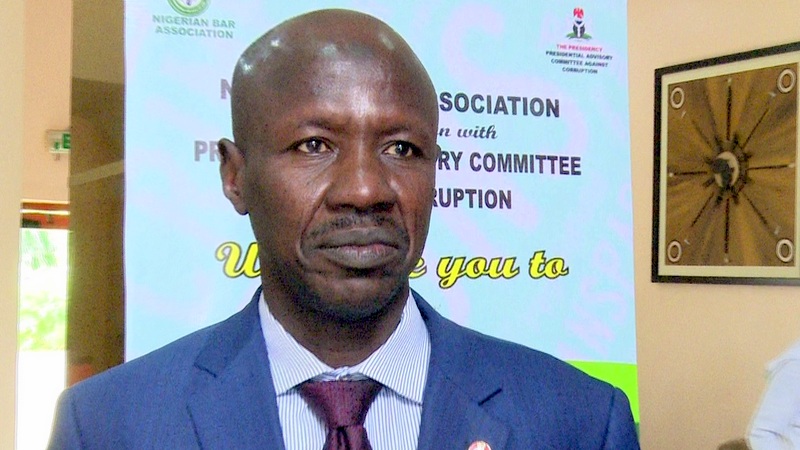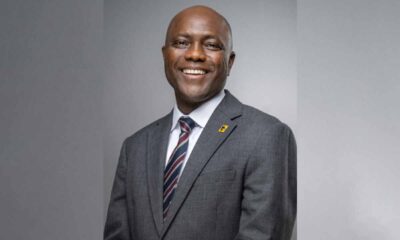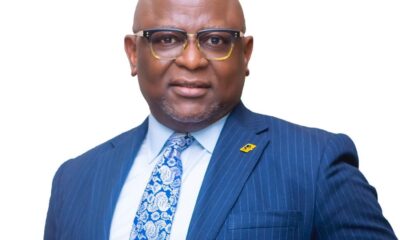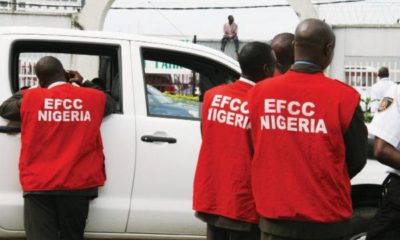- EFCC hands over 116 cars, 20 houses to First Bank
The Economic and Financial Crimes Commission on Wednesday handed over 116 cars and 20 properties in Edo, Rivers and Lagos States recovered from one Michael Obasuyi Osasogie to First Bank Plc.
Trouble began for Osasogie after a petition he wrote to the commission against E-tranzact in March 2018.
The EFCC had, however, investigated Osasogie’s business interests, following receipt of a counter-petition written by e-tranzact against Osasogie and one of his companies, SmartMicro.
SmartMicro was said to have approached e-tranzact in 2012 for the deployment of bulk purchase solution called “Corporatepay” to facilitate payment of salaries of Delta State employees in microfinance banks.
It was also alleged that e-tranzact configured an additional outbound fund transfer solution called “Fundgate” in 2017, which required SmartMicro to maintain a pre-funded settlement account with First Bank Plc for settlement of account it had initiated.
However, e-tranzact had further alleged that the bank, sometime in March 2018, revealed that the settlement account was in debit of N11, 498,944,038.29.
Obasuyi, in his statement to the commission, confessed to have committed the crime, stating that he created fraudulent and imaginary monies through the aid of Fundgate Financial Application from the company.
Consequently, Osasogie was arraigned alongside his firms-Platinum Multi-Purpose Co-operative Society, SmartMicro Systems Limited and Platinum Smart Cruise Motors Limited on May 24, 2018 before Justice Justice Mojisola Dada of the Special Offences Court sitting in Ikeja on a 14 charges bordering on stealing to the tune of N11, 498, 944, 038.29.
One of the counts reads: “That you, Michael Obasuyi Osasogie, Platinum Multi-Purpose Co-operative Society, SmartMicro Systems Limited and Platinum Smart Cruise Motors Limited, sometime in the year 2016 in Lagos within the jurisdiction of this Honourable Court, conspired to commit felony, to wit: stealing of the sum of N11, 498, 944, 038.29 property of First Bank Nigeria Ltd.”
He pleaded guilty to the charge preferred against him.
During his trial, an investigator with the EFCC, Orji Chukwuma, had told the court how the proceeds of crime were housed in some banks.
Led in evidence by the prosecution counsel, Rotimi Oyedepo, Chukwuma had told the court that “SmartMicro Systems Limited assumed a position of a fictitious microfinance bank in Nigeria through a software, Micro switch Server 1.1 created by the defendant as well as two genuine microfinance banks, which he used to carry out his fraud.
In his further testimony, the witness had told the court that when e-tranzact disconnected from the chain, all the transactions carried out by the defendant collapsed on his own account with First Bank, thereby leading to the discovery of the fraud.
The sums of N2, 903,727,563.92, $37, 992.87 and €18,538.09 were recovered by the EFCC from Osasogie’s accounts in various banks in the country.
The commission also recovered 116 cars and 20 properties located in Lagos, Abuja, Benin and Port Harcourt.
The prosecution counsel had, therefore, urged the court to convict the defendant on counts one to 14, according to the law.
The defendant later entered into plea bargain. The prosecution counsel therefore urged the court to consider the plea bargain entered into by the defendant on May 21, 2018 as judgment in his sentencing.
Delivering her judgment, Justice Dada convicted the defendant on all the counts and sentenced him to one-year imprisonment.
The Judge also ordered the forfeiture of defendant’s 116 buses, 20 properties and monies in various accounts to First Bank Plc.
At the hand- over ceremony, which held in one of the forfeited houses at Osapa London, Lekki-Lagos, Kaina Garba, Head Asset Forfeiture and Recovery Management Unit of the EFCC , Lagos office, handed over the documents and keys to the properties to Gabriel Edobor, Head, Remedial and Classified Assets Management Department, First Bank Plc and Eme Godwin, Group Head, Legal Unit, E-transact.
In a show of appreciation, both Edobor and Godwin thanked the EFCC for ensuring the recovery of the properties through diligent and uncompromising investigative efforts.

 Forex3 weeks ago
Forex3 weeks ago


 Naira2 weeks ago
Naira2 weeks ago
 Billionaire Watch2 weeks ago
Billionaire Watch2 weeks ago




 Naira2 weeks ago
Naira2 weeks ago




 Naira2 weeks ago
Naira2 weeks ago




 Naira1 week ago
Naira1 week ago




 Naira3 weeks ago
Naira3 weeks ago




 Naira4 weeks ago
Naira4 weeks ago






















